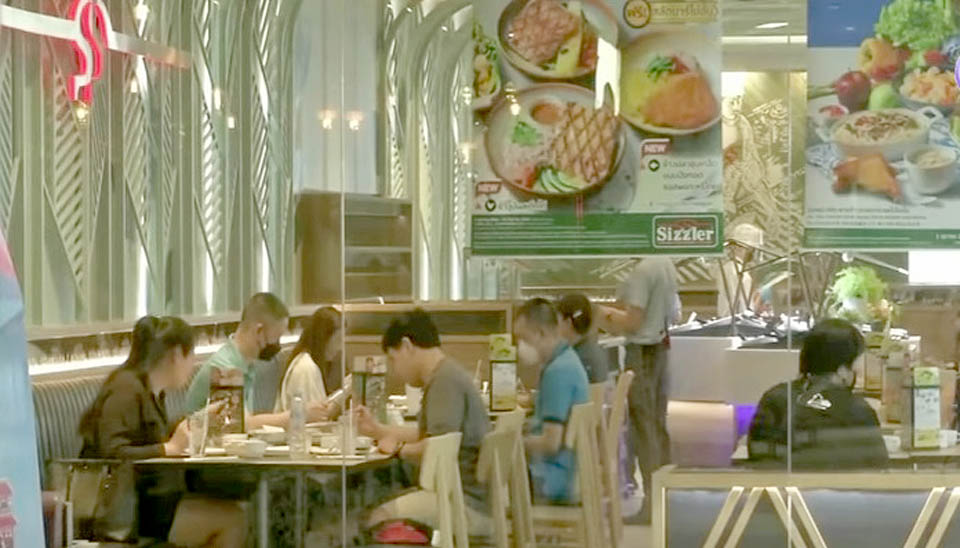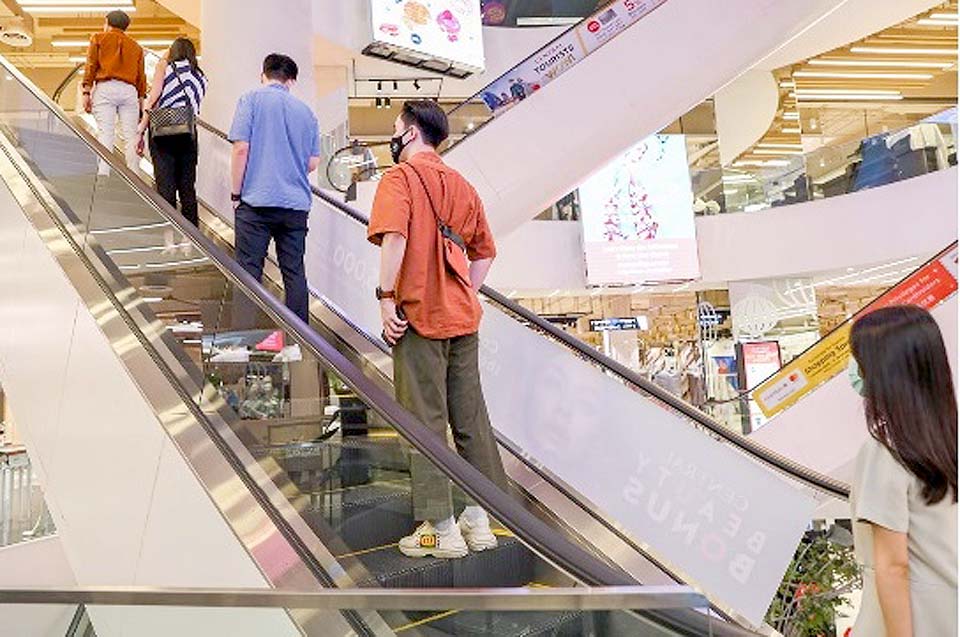
Thailand relaxed more virus-related social curbs on Wednesday, September 1st, in dozens of cities including Bangkok, in a move that may indicate that the country’s economy, hit hard by COVID-19 will soon revive, led by the export sector and sound financial fundamentals.
During the past couple weeks, new infection cases have been down from roughly 20,000 daily cases to 17,000 -19,000. Moreover, the number of daily discharges is exceeding infections, which has led to the conclusion that the situation is improving.
Therefore, the Center for the COVID-19 Situation’s Administration decided at the end of August to lift some lockdown measures in 29 provinces designated “Maximum and Strict Controlled Areas” or dark-red zone provinces from September 1st onward. Restaurants and malls have reopened under strict hygienic measures. Flights between provinces have resumed, while night entertainment venues, schools and other businesses remain closed.
The easing of controls comes with the hope that the Thai economy will be able to get back on track quickly after the COVID-19 slowdown, due to its strong fundamentals.
In an online seminar recently held by the Stock Exchange of Thailand on the topic “Thailand Focus 2021: Thriving in the Next Normal”, Arkhom Termpittayapaisith, the Minister of Finance told audiences who are key investors in both domestic and foreign markets that while the spread of the Delta variant had affected Thailand’s economic activities and growth prospects in 2021, the situation in 2022 will be far better.
Meanwhile Dr. Pisit Puapan, Director of the Macroeconomic Analysis Division – the Fiscal Policy Office, Ministry of Finance, said in the same seminar that Thailand’s economy had contracted by 6.1% in 2020 from the earlier prediction of 8-10% by many international and domestic organizations, showing that the Thai economy performed better than expected.
“This demonstrates that Thailand’s economic fundamental remain strong with public debt to GDP ratio at 55%, relatively low unemployment, low inflation and high international reserves,” Dr. Pisit said. He added that Thailand had also received high marks from ratings agencies which is a good sign to attract more foreign funds.
For 2021, the country’s prominent economic related units such as the Ministry of Finance, the Bank of Thailand, the National Economic and Social Development Council have recently revised down the projected GDP growth. However, all of them see much higher growth, according to Arkhom.

Based on an assumption that Thailand will be coming out of the COVID-19 situation by the end of this year, all economic agencies have agreed that the economy will grow by 1.3% this year and up to 4-5% in 2022.
Amidst sluggishness in many sectors, Thailand’ export sector, propelled by world economic recovery, has recorded surges in recent months. Export value expanded by almost 16 percent YoY in the first half of 2021 and exports in June also expanded strongly by 44 percent YoY, the highest growth in 11 years.
Moreover, the country also sees an increase in private investment during the first half of 2021, as reflected by the expansion of capital goods importation by 14.5 percent YoY.
Compared to Thailand’s peers, Thailand’s public debt to GDP is at an acceptable rate. The minister expected the ratio would remain below 60 percent till the end of this fiscal year. Meanwhile, the low interest environment is expected to be maintained until economic recovery is back on track.
The government would put the utmost effort into stimulating the economy especially gradually reopening the economy by implementing the Phuket Sandbox and Samui Plus models which will later extend to other tourist provinces, Arkhom concluded.
Meanwhile, Dr. Sopon Iamsirithaworn, Deputy Director General, Department of Disease Control, Ministry of Public Health, also expressed his belief that the number of new cases is on a downward trend. Thailand should be able to achieve herd immunity this year after the next delivery of more vaccines.
Dr. Sopon said in the same seminar that there have been around 24,000 international visitors under the Phuket Sandbox program since July 1st. Among them, only limited numbers of new cases of Covid-19 were reported and all of them were with mild symptoms.
He said that this demonstrates that Thailand is safe to visit. Currently, the government is planning to replicate the tourism programs elsewhere in Thailand such as on Samui Island and in other cities in a bid to revive the tourism sector, which is one of the key economy driving engines.
(NNT) – Article by Busaba Sivasomboon
 |
 |
 |





